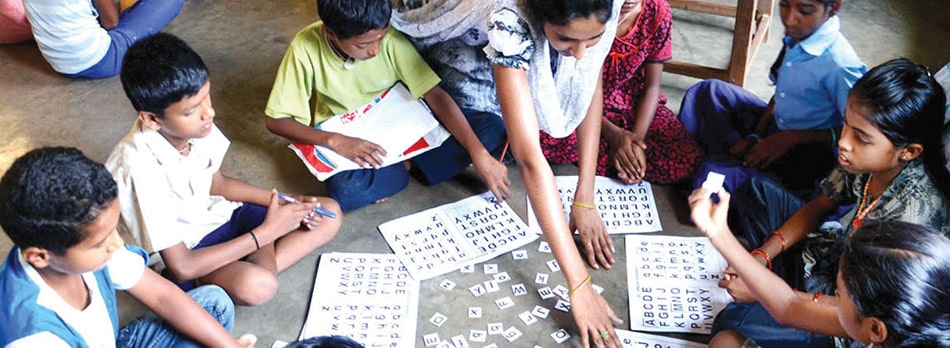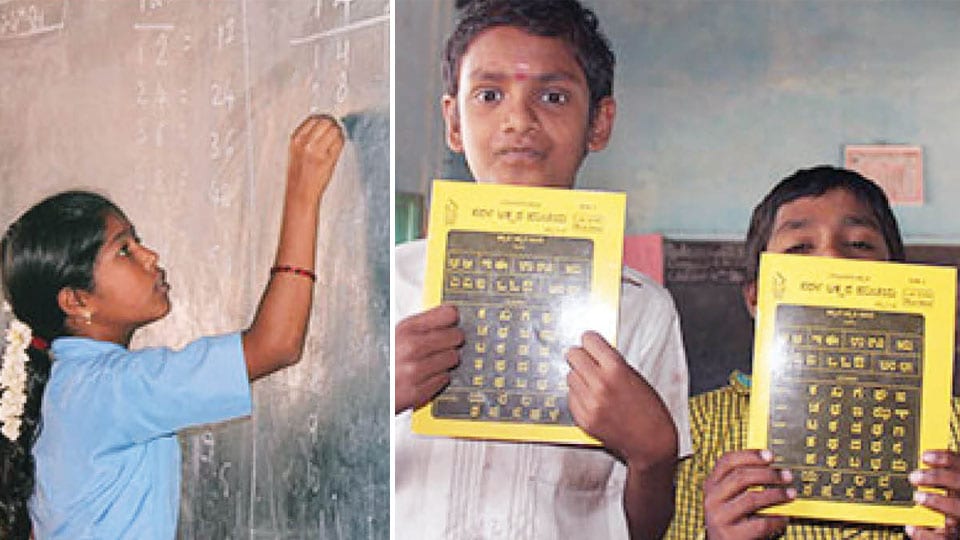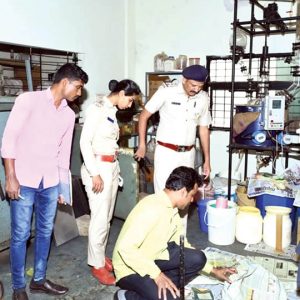What NGOs can do to make this a better world
By Ashvini Ranjan
Not long ago, I travelled by train to Bengaluru. As it was an unplanned trip, I had to buy a ticket at the Railway counter. As I stood in line, I noticed people cutting into the line ignoring those already waiting. Protests by a few were ignored as they pushed their way through.
While on the train, I was unable to read a book I carried as the conversation by my co-passengers was loud and disturbing. The children travelling with them added to the din with their running around and having arguments amongst themselves. They dropped trash on to the floor and the adults made no effort to correct them. The adults too dropped peanut shells without a second thought. While the three-hour travel time was anything but relaxing, it was also a time for some serious introspection.
Human beings are social creatures and have to live in communities of their own kind. For such living, manners, codes of behaviour, decorum and rules of etiquette are a pre-requisite. It is such good conduct that determines quality of life and our level of happiness and comfort living in the community. It is unpleasant or even annoying when the man on the street, the vegetable vendor, the autorickshaw driver or an employee uses impolite language in the course of normal conversation or lacks basic manners. The person concerned may not mean to be offensive or disrespectful. It may be their normal conduct. More often than not, we blame the individuals displaying such impoliteness without giving thought to the reasons for such behaviour.
Cultures across the world established rules of social etiquette and good behaviour. It was essential for cordial social living and good relationships. The family as a whole ensured that the child imbibed these values as a pre-requisite for social acceptance.
As the child grew up, the teacher and the school became the source for further social manners essential for adult life. Politeness, respect for elders, compliance with established social rules were all integral part of the lesson. There was a logical continuity at all stages of the child’s learning. If there appears a visible decline in the quality of social behaviour of the young generation today, there must be a valid reason.
The children in the urban areas with educated parents monitoring both the schooling and the child’s behaviour are better placed to learn etiquette and acceptable social behaviour.
But the children in the rural areas with uneducated parents are at a disadvantage. The parents are unable to impart knowledge as in the case of urban children not only because they are themselves unaware, but also do not have the time to do so. To the rural parents, providing food to their children is their top priority. The only source of training to the child is the school. If the school does not impart training in basic codes of behaviour, social etiquette, respect for law, it is bound to reflect as the child grows into an adult.
With more and more rural people migrating into towns and cities in search of jobs and a living, there is bound to be further deterioration of good conduct.
During 1951, the urban population in India was 62 million people, 17% of the population. In 2011, the estimates were 377 million, or 31% of the population. By 2025, it is expected to touch 42% of the population. Unless there is a social awakening and course correction, the situation will only grow worse. There are no quick fixes to this problem. But what is really required is a social awakening. A will to change. Not just by the government alone, but by every member of the society. More so by people who have had the good fortune of education and comfortable living.

An attempt to offer a solution should be possible, it is not clichéd. Schemes should be measurable, accountable and time bound. All related agencies should be given specific tasks. The following measures may be considered for achieving the objective:
- Government should consider introduction of compulsory two year NCC (National Cadet Corps) training to all children in the 9th and 10th standard classes. This is similar to compulsory military service in some western countries. During these two years of two day a week, rigorous training, lessons on discipline, social behaviour, compliance with law, etiquette, respect for others etc., all that is required to make a better citizen. Children with such training should be given preference to higher education and for employment. This could even reduce the incidence of crime in the society.
- Parents should take greater responsibility in imparting values to the children. They need to demonstrate these by themselves following it. One cannot preach morals and practice something contrary. Even the monies they give as pocket allowance should be accountable.
- Large companies with big profits are required to pay 2% of their profits as CSR (Corporate Social Responsibility) contributions towards social causes. This should not be viewed as charity but a good business investment. The return on investment may be long term. They need to create more customers for their products in the future. Such investment should be made with all seriousness and responsibility.
- On an individual basis, helping the children of our employees not only financially, but mentoring them. Discussing their challenges and offering possible solutions. Offer to give time to a nearby government school to answer or find answers to many of their doubts and questions. If none of the above suits one because of his or her nature of work, then he or she can support or participate with NGOs who work in the space of education.
The task to begin with may appear daunting. But the journey of a thousand mile, as the saying goes, starts with the first step. We have limited choices and limited time. We need to take the first step today, if we wish to make a better world for our future generations.
About the author: Ashvini Ranjan is the Managing Trustee of Pratham Mysore, an NGO established in 2002 to ensure that ‘every child is in school and learning well’. It focuses mainly on improving quality of learning of children studying in Government Primary and Secondary Schools. With headquarters in Mysuru, Pratham Mysore has its education initiatives in six Districts of Karnataka including Bengaluru North, Mandya, Nanjangud, Chamarajanagar, Mysuru rural and Ron in Dharwad.








Excellent article. Thanks for sharing information and tips for educating and preparing responsible and caring citizens.
Thanks and all the very best.
Arun